Located in Thuan Thuanh district, Bac Ninh, an hour drive from Hanoi, the 6ha Delco Farm is one of the most intelligent and modern farming models in north Vietnam. The farm applies 100% of information technology to produce clean agricultural products.
All the design work, building processes, monitoring programs development, automatic controlling systems and the Internet of things (IoT) are implemented by Delco engineers and Vietnamese partners. This helps reduce the cost of Delco’s farming model and its implementation time, and easily expand the farming model.
When entering high technology farming, Delco Farm cooperated with Vietnamese technology enterprises to carry out the work together.
Le Khanh Manh, Delco Farm Director, said that high technology helps enterprises manage the productivity and quality and reduces 25% of the investment cost.
For instance, Delco Farm plays music for the hens to help keep the atmosphere calm and the hens relaxed. Listening to music makes the hens stay stress-free and produce more eggs. After nine months of laying eggs, Delco Farm’s hens maintain 92% of their egg-laying performance. This rate in the market is only 80-82%.
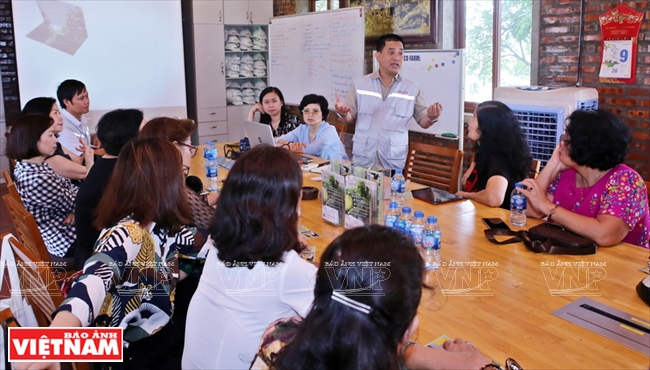
Le Khanh Manh, Delco Farm Director, introduces the technology used in the farm to the female scientists of the Vietnam Association for Intellectual Women.
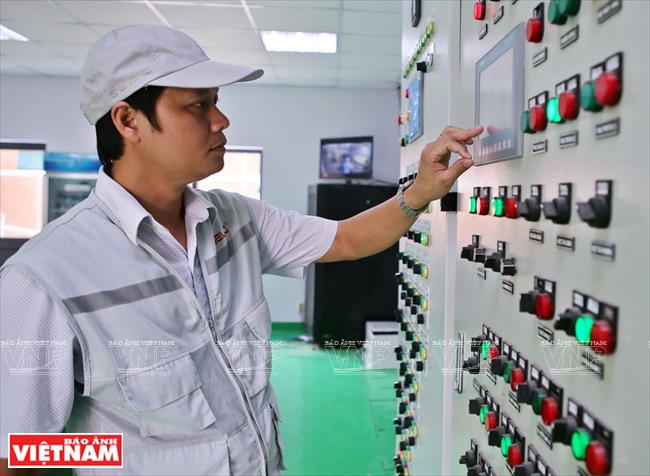
All the monitoring programs development, automatic controlling systems and the Internet of things (IoT)
are implemented by Delco engineers.
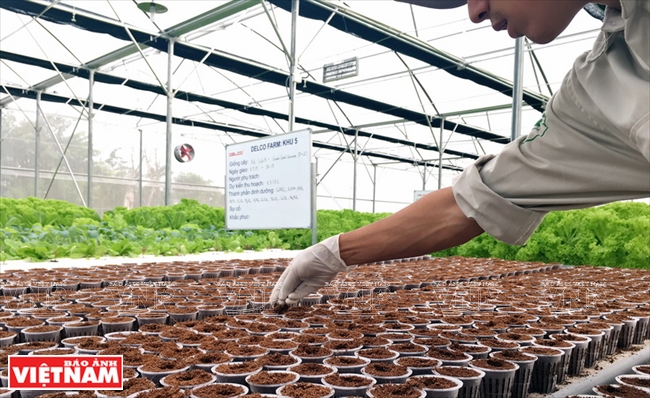
Delco Farm is conducting research and experiments on various new seeds.
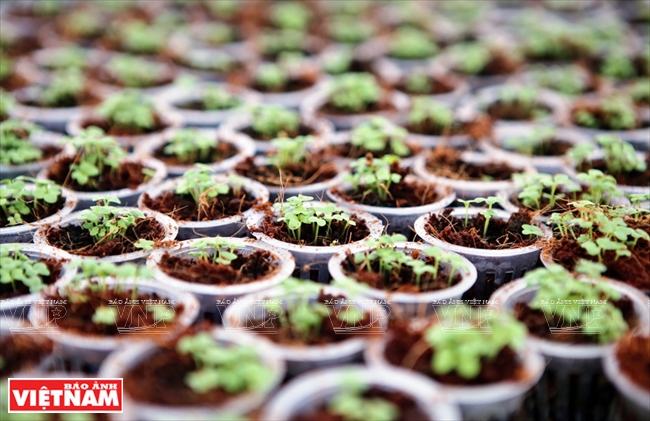
Seeds imported from the Netherlands give better yield and high rate of germination, up to 90%.
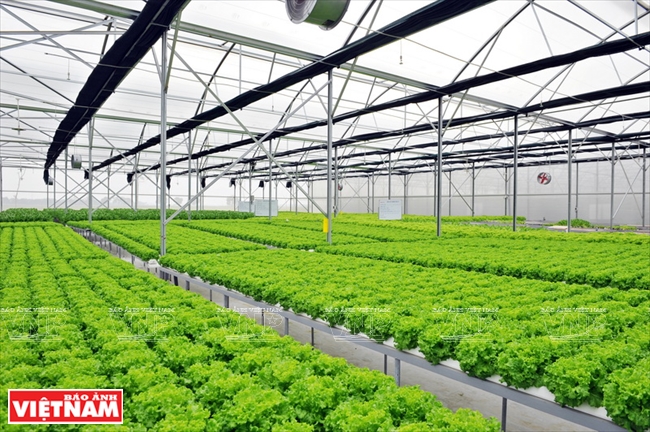
Delco Farm's 1,000m2 high-tech hydroponic farm.
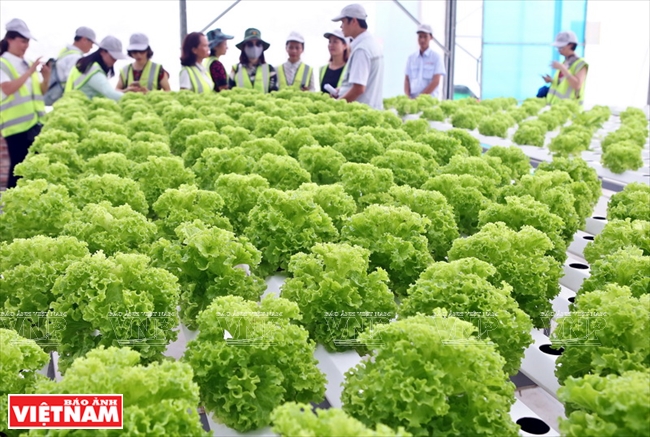
Nutrient-rich lettuce planted in Delco Farm.
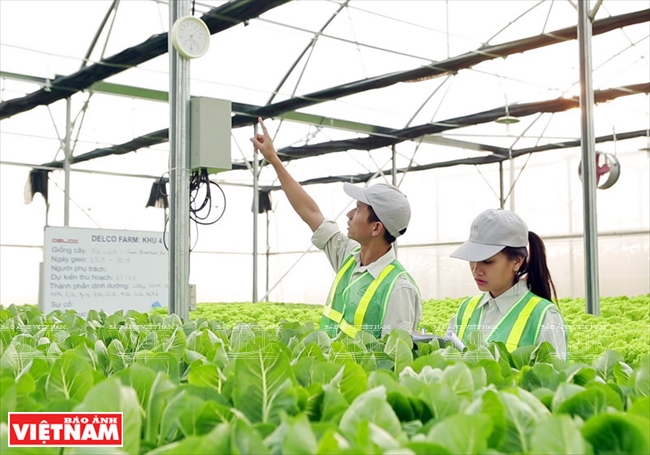
Delco Farm's technicians test the operation of the system and the development of vegetables.
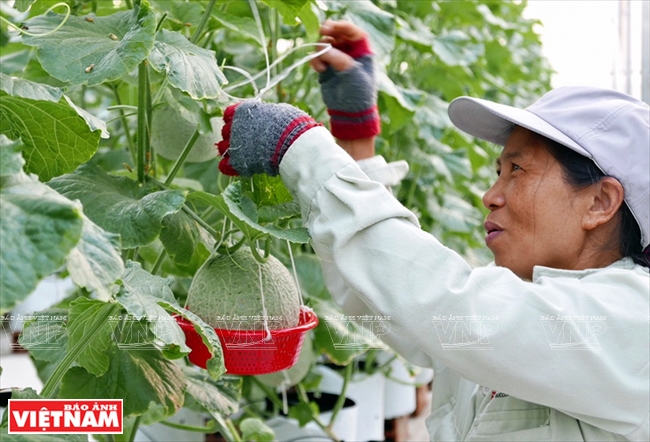
A farm worker takes care of the water-melons.
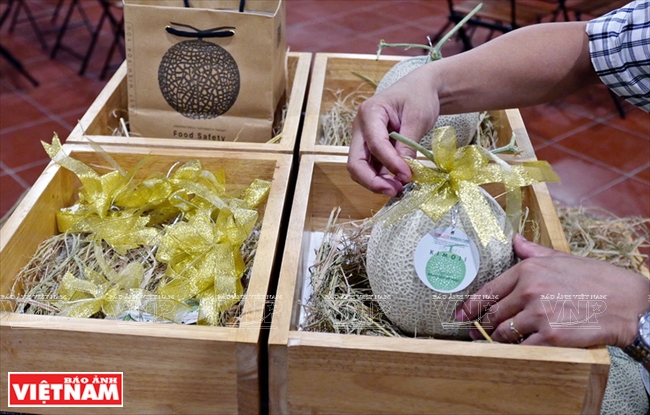
A kilogram of KimoJi watermelon costs 120,000-150,000 dong.
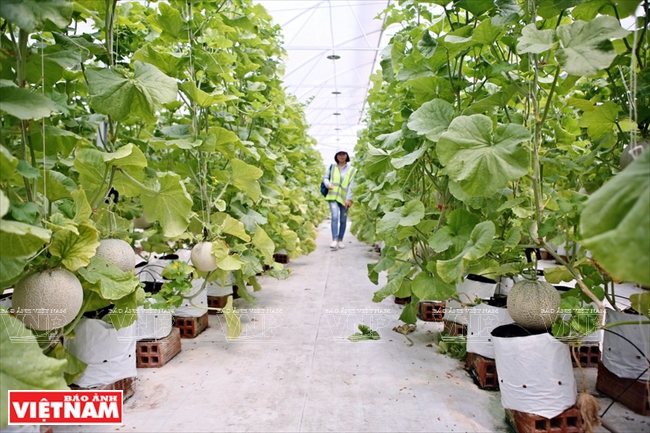
Delco Farm has two KimoJi water-melon gardens, with an area of 1,700m2 each. |
In early 2018, many farmers had to destroy all their hens due to an outbreak of bird flu. According to Manh, this is a risk of doing business traditionally. Manh said high technology improves the hen’s egg-laying performance and decreases external risks including bad weather.
Manh also said the farm can track how much water and how much food that the hens consume. Therefore, he will know immediately if the hens eat and drink less than normal in order to better solve the problems.
Applying new technology, Delco farm now has an air supply system which supplies fresh air to the end of the stall, an exhaust gas system, an air-cooling system on the roof and a heating system for the hens.
Delco farm can raise a number of hens 2.5 times that of hens raised by conventional farming methods on the same area. The farm has two egg-laying hens’ blocks, with more than 20,000 hens, a 1,000 m2 vegetable garden and two KimoJi water-melon gardens, with an area of 1,700m2 each.
Delco Farm offers accommodations for tourists who come to visit and buy fresh agricultural products.
The price and quality of Delco Farm’s products have received positive feedback from partners and customer. Delco Farm is now the supplier of Japanese restaurants in Vietnam and big hotels./.
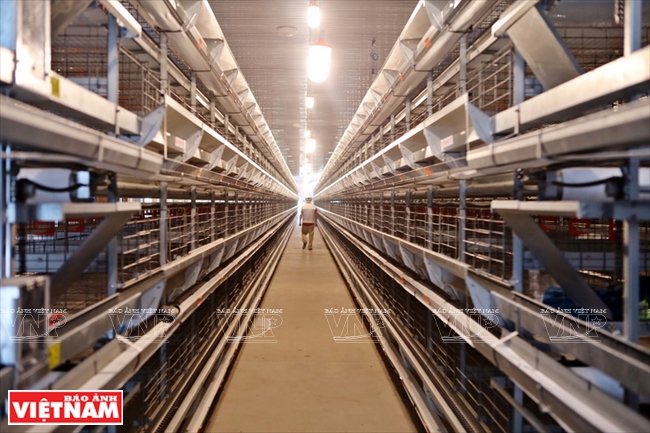
Delco Farm’s hens maintain 92% of their egg-laying performance while this rate in the market is 80-82%.
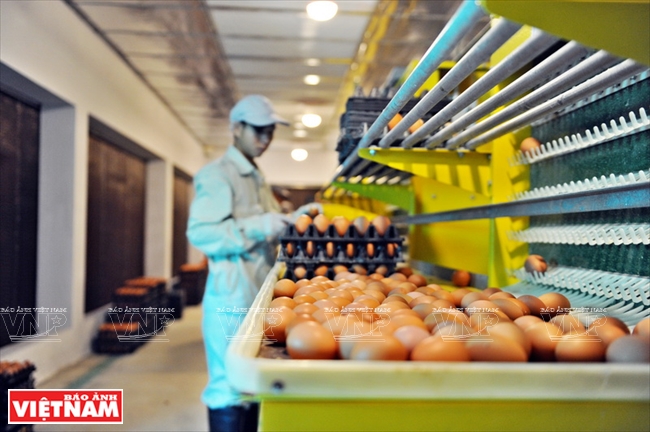
Collecting eggs.
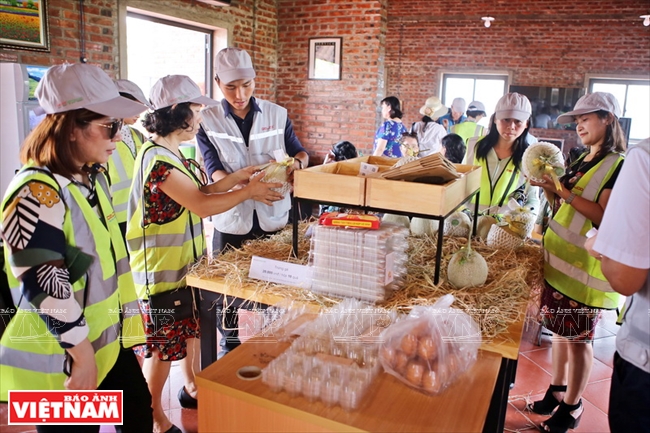
Delco Farm is now the supplier of Japanese restaurants in Vietnam and big hotels. |
Story: Thao Vy – Photos: Tran Cong Dat